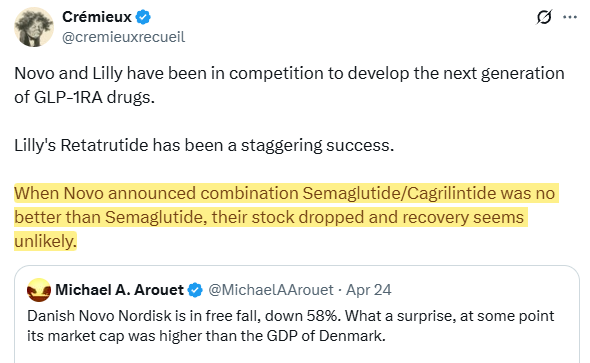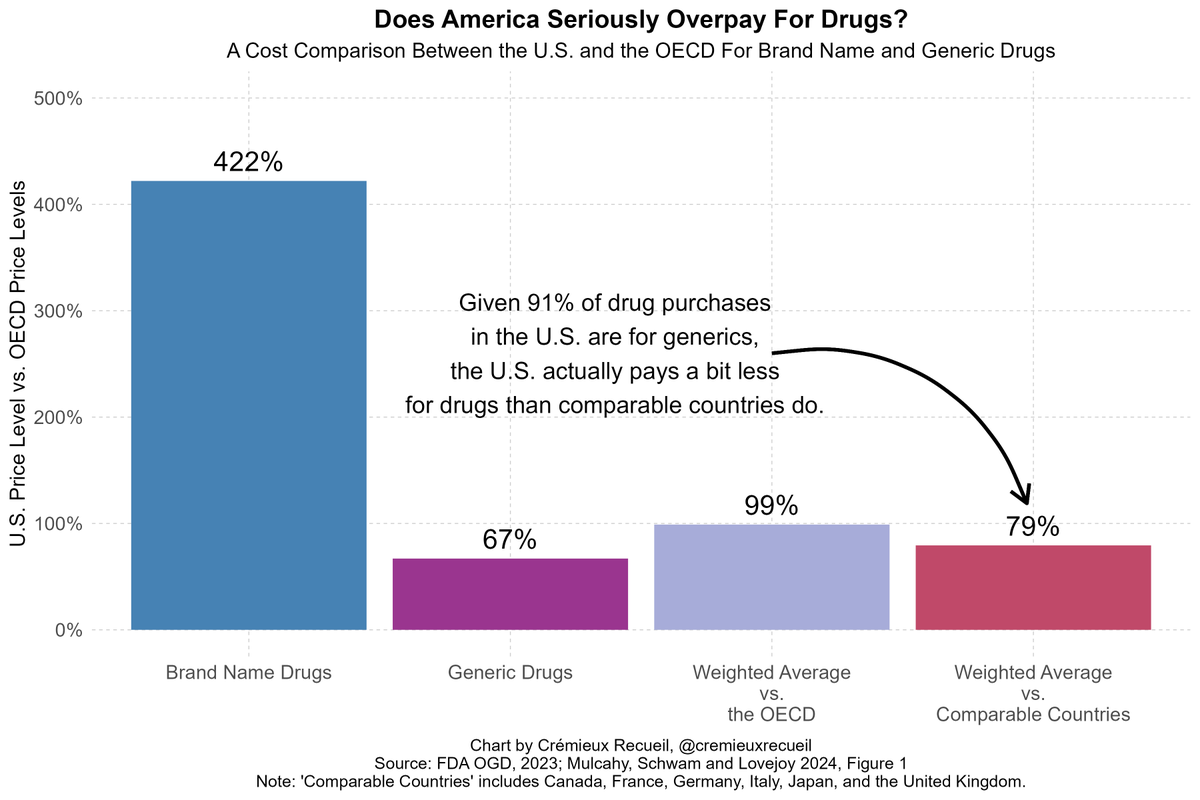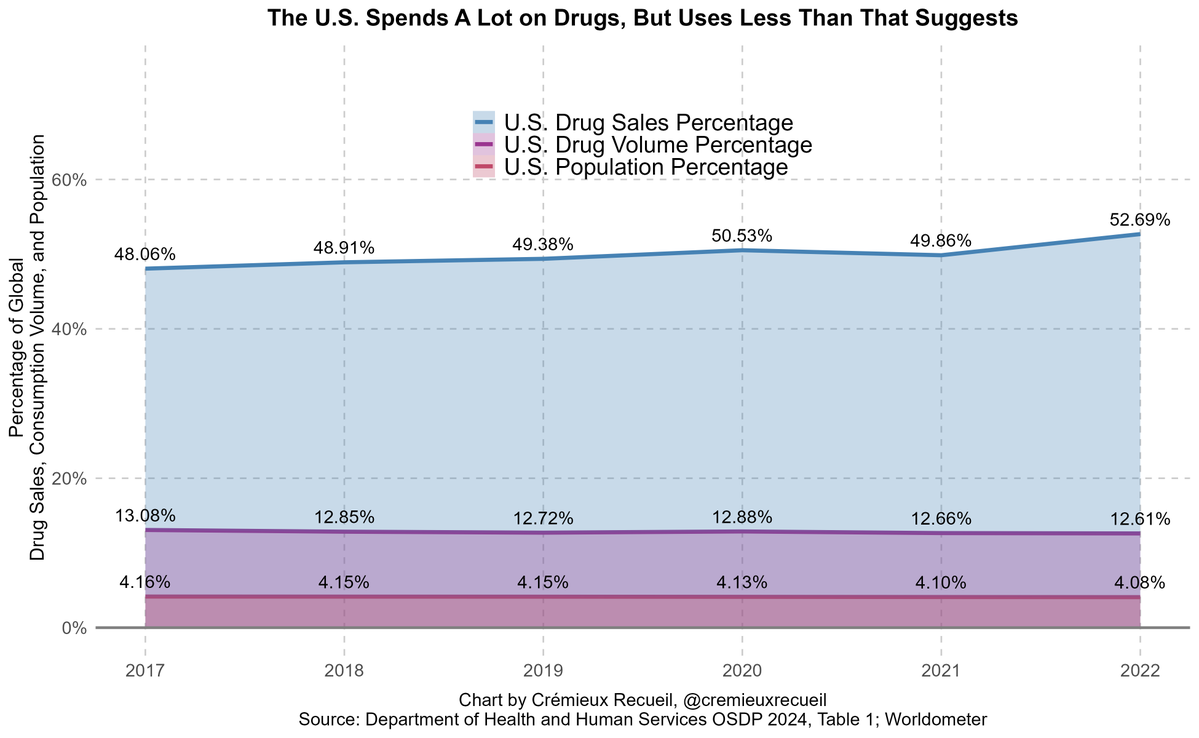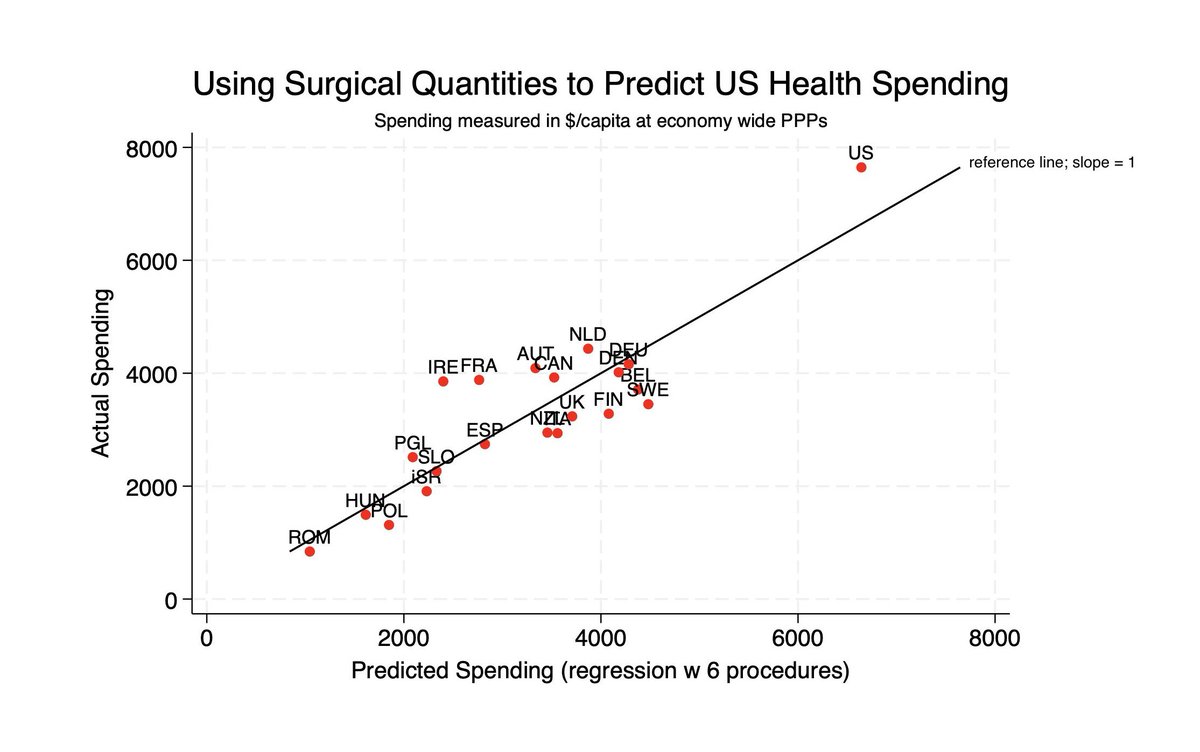When a country sets its pharmaceutical prices based on the prices in other countries, it disincentivizes offering drugs in other countries if they're poorer.
We can see how this plays out in Europe, where the poorest countries get new drugs on a massive delay.
We can see how this plays out in Europe, where the poorest countries get new drugs on a massive delay.
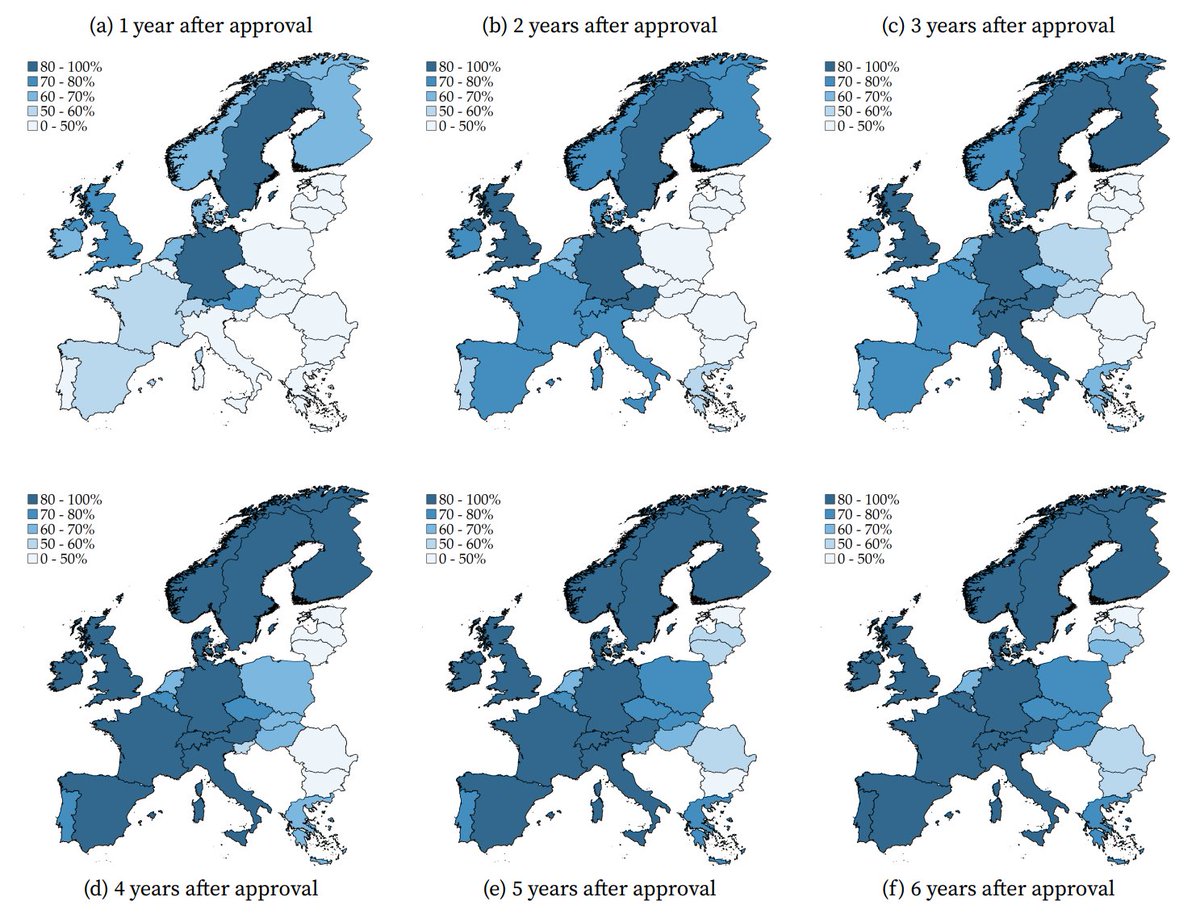
This leads to a lot of situations where, if people complain about high prices, it's appropriate to respond like so:
'The price of $drug is so high in America!'
'Ah, but there is a price.'
The lower the prices, the longer the delays, the more lives lost.
'The price of $drug is so high in America!'
'Ah, but there is a price.'
The lower the prices, the longer the delays, the more lives lost.
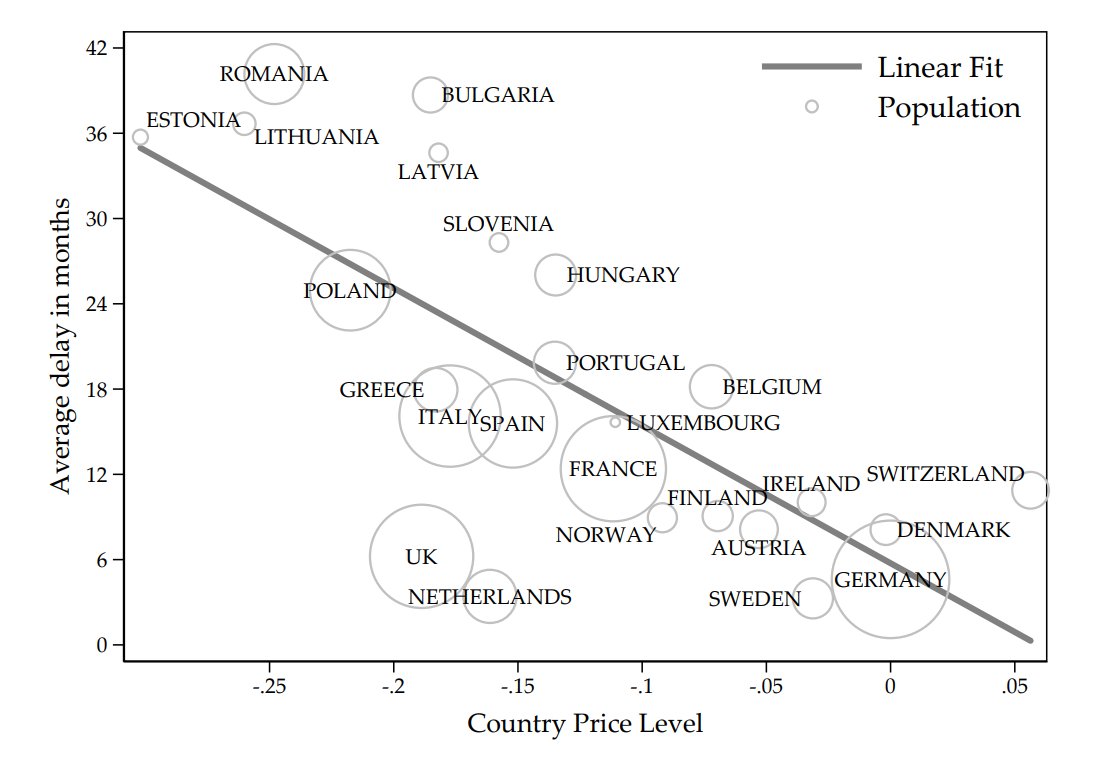
This all comes from this paper: aeaweb.org/articles?id=10…
• • •
Missing some Tweet in this thread? You can try to
force a refresh






